It can be hard to find unbiased political news and election coverage in the United States, even though a 2018 poll by Pew Research showed that 78% of respondents in the U.S. believe “the news media should never favor one political party over another.”
Many so-called “news” organizations don’t even try to hide their bias toward one end of the political spectrum or the other. Still, it is possible to find reasonably unbiased, nonpartisan election coverage if you know where to look. Here are eight great websites for fact-filled and (arguably) bias-free election coverage.


1. Politifact.com
PolitiFact is the mother of all political fact-checking websites. Owned by the nonprofit Poynter Institute for Media Studies, PolitiFact describes itself as “a nonpartisan fact-checking website to sort out the truth in American politics.”
You can view their latest election coverage, explore the Truth-o-Meter’s latest fact checks ranging from “true” to “pants on fire,” view scorecards on specific issues like immigration or taxes, and find scorecards on specific people.

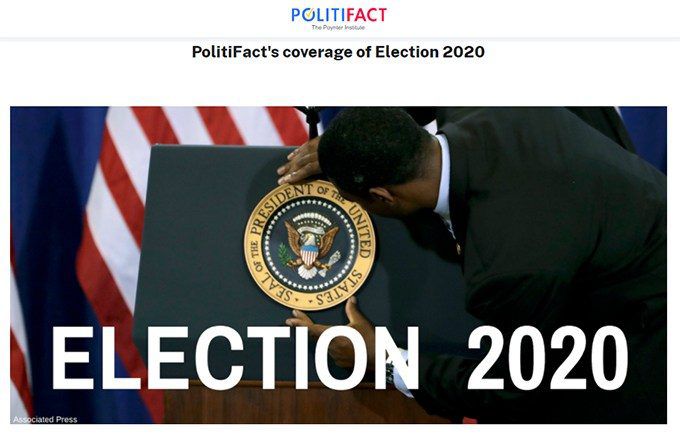
PolitFact is transparent about its funding and methodology, carefully explaining how they choose which claims they fact-check and how they determine ratings. These are hallmarks of unbiased reporting. Also check out their off-shoot, PunditFact, which provides similar fact-checking of media personalities.
2. FiveThirtyEight.com
FivethirtyEight.com (named for the number of electors in the Electoral College) is the brainchild of statistician Nate Silver who has remained the site’s editor-in-chief through a number of changes of ownership.

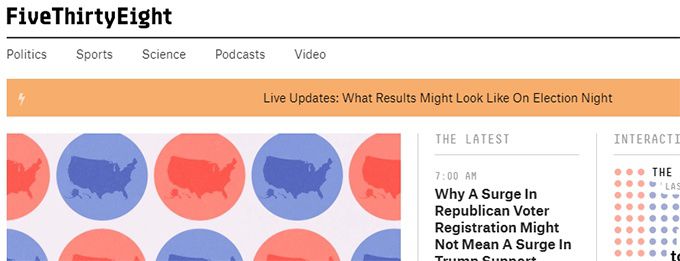
This is a great site to go to for unbiased analysis of political opinion polls. While it has expanded its focus to include topics beyond elections, like sports and science, it’s still the go-to site to learn what those political poll results really mean. Even better, FiveThirtyEight provides their raw data and code on some topics and encourages readers to create their own stories and visualizations.
3. Ballotpedia.org
Ballotpedia is “the digital encyclopedia of American politics and elections.” Like PolitiFact, Ballotpedia is a nonprofit with a mission to educate and a commitment to neutrality. You can find information on national, state, and local elections, including candidate profiles, policy positions, election news, and information on voting.

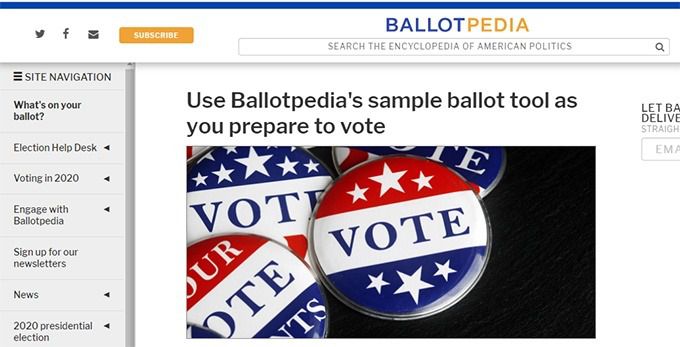
You can also subscribe to their wide variety of newsletters like Ballotpedia’s Daily Brew, a short email sent every morning with a summary of the day’s main political stories.
4. Factcheck.org
Factcheck.org is the third nonprofit on our list. Similar to PolitiFact, FactCheck.org monitors “the factual accuracy of what is said by major U.S. political players in the form of TV ads, debates, speeches, interviews and news releases.”

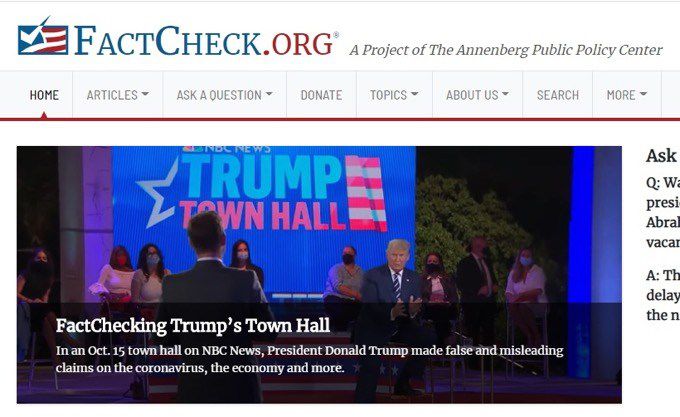
You can browse by month, person, issue, or location, or try reading through their Debunking False Stories Archives. (FactCheck.org is one of several organizations working with Facebook to flag and debunk misinformation on social media.) You can even submit a question via their Ask FactCheck feature.
5. Federal Election Commission
Money matters. If you want to follow the money, a great place to start is with the Federal Election Commission (FEC). Although it is a government agency, the FEC is “an independent regulatory agency charged with administering and enforcing the federal campaign finance law.”

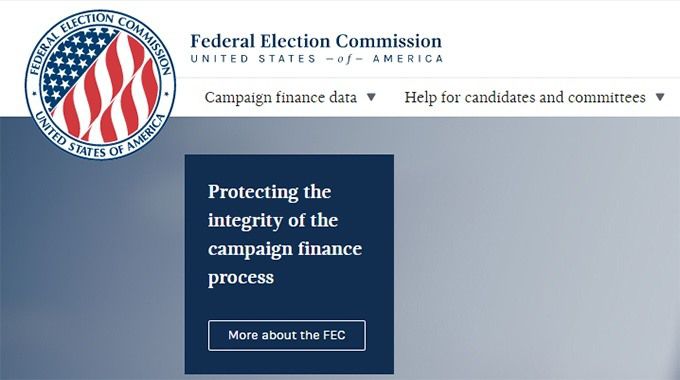
Have you ever wondered how much money a presidential campaign is raising, what they’re spending that money on, or how much cash they have on hand right now? The FEC can tell you.

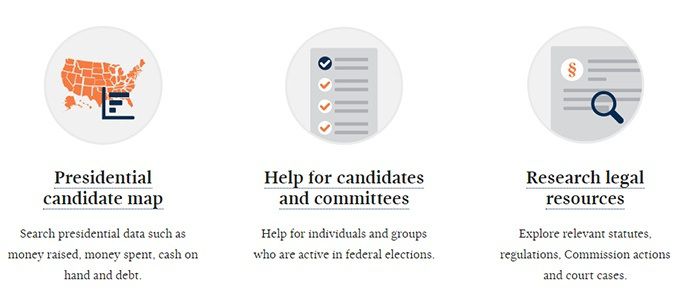
6. OpenSecrets.org
Another good nonprofit, nonpartisan website to visit is OpenSecrets.org. Run by the Center for Responsive Politics, OpenSecrets.org tracks “money in U.S. politics and its effect on elections and public policy.”

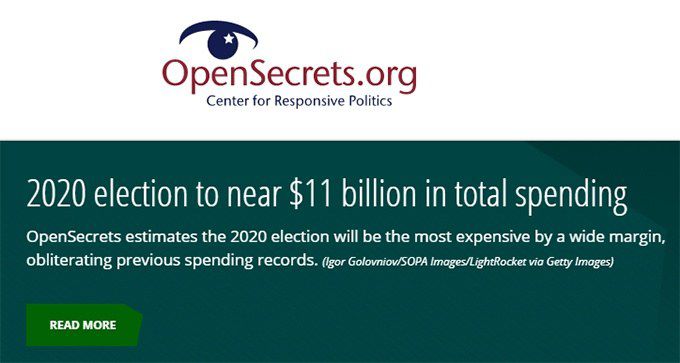
One of their goals is to “expose disproportionate or undue influence on public policy.” Use this site to search how money plays a part in campaigns, super PACs, and lobbying. You can also delve into the personal finances of members of Congress, the president, the vice president, and other members of the president’s administration.
7. Vote Smart
VoteSmart.org is serious about staying unbiased. They say, “Most of us at Vote Smart are not paid and those who are receive only minimal salaries to cover living expenses. We will not accept funding from corporations, PACs or any organization that supports or opposes candidates or issues. This effort will be financed by you and other Americans or not at all.”


Enter a candidate’s name in the Vote Smart search bar, and then choose to view the candidate’s bio, their voting record, positions on key issues, endorsements and ratings, speeches, or funding. If you like, you can also register for My VoteSmart, choose which candidates you want to track, and receive a daily email with any new data that VoteSmart learns about that person.
8. AllSides.com
The last entry on our list, AllSides.com, believes that “unbiased news does not exist.”
Rather than striving for neutral election coverage, AllSides.com endeavors to “expose people to information and ideas from all sides of the political spectrum so they can better understand the world — and each other.” Visit this site to view news stories organized in three categories: news from the left, news from the center, and news from the right.

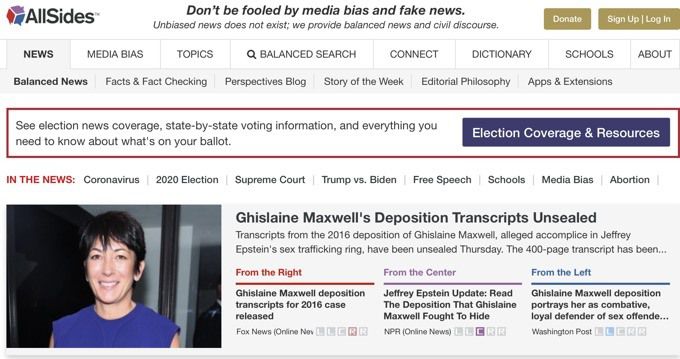
You can also find their Media Bias Ratings to “help you to easily identify different perspectives so you can get the full picture and think for yourself.” Search by issue, or check out their dictionary which discusses how people of different political persuasions define a certain term or issue.

